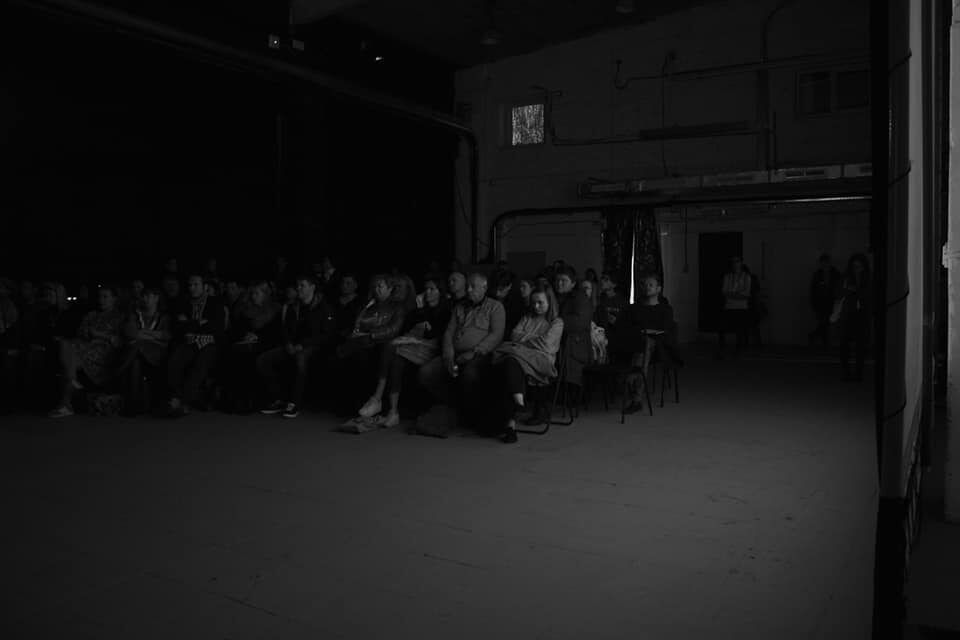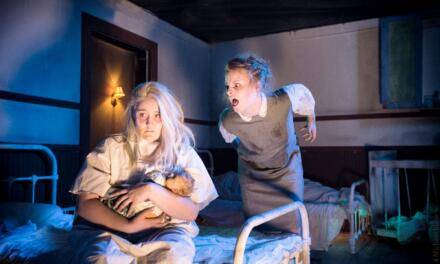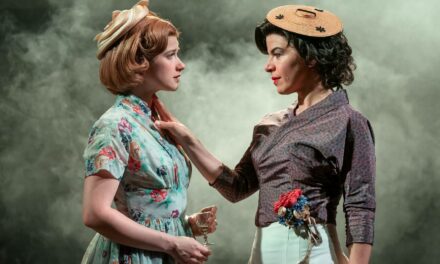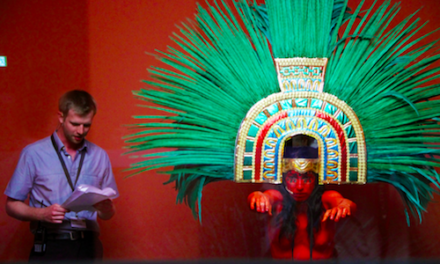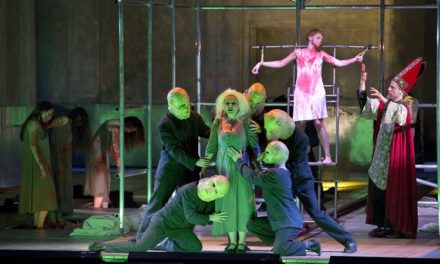Oksana Haiko is an actress, art-manager and one of the founders of Brest-based theatre “Kryly Khalopa” (“Wings of a serf” in Belarusian).
On September 22, she presented Kryly Khalopa’s most successful project of the latest years, an audio drama/documentary project Brest Stories Guide, for the “TEART” theatre festival. On this occasion, we met to talk about the theatre’s current and future.
Alexander: What actively distinguishes your theater from others is the Repertoire. When most of the Belarusian theatres try to avoid hot topics, Kryly Khalopa is one of the few theatres that put on the map actual hot topics. How critical are such topics for your theatre and how important are they for your audience?
OH: They are very important. We declare this in the mission of our theater: the embodiment of a critical view of the actual problems of the society in a performative form, and the development of contemporary theatre in Belarus as well as the development of innovative theater practices. We have been doing theatre for the last eighteen years, and initially, we did not make our art as a kind of entertainment. I wrote a manifesto: “Art is sharp, art is a weapon – that’s what interests us.” This is my point in making art. Mass culture provides people with entertainment. In our theatre, the viewer has a chance to take thought about highly important social issues, and to rethink the surrounding reality.
Alexander: The typical hardships faced by independent theaters are fundraising, audience development, and the venues. What are the most pressing issues for your theater?
OH: It is crystal clear, that the issue of fundraising art projects is relevant for everybody without exception, who is engaged in art production. I am talking not only about theatres but about art in general. Thus we have to constantly struggle, and search for various new opportunities.
On the question of our stage, we have our own “Prastora KH” for five years already. It combines a theatre, a gallery and a space for various cultural events. So the venue issue has been solved for us. The rest of the problems is the search for financing our projects. We solve this problem in different ways: we hold paid workshops, lead theatrical schools, and rent out spaces. The main problem is to remain still being a creator while being an art manager. In recent years I had to deal with art management mainly. Managing a theater, finding the money for projects and still be able to make art – that is the problem. On the other hand, I understand that there’s no reason to cry about this because if you are not an artist whose paintings are sold for a fabulous price, you should act exactly this way.
Alexander: How did the audience of your theater change through the years? Maybe someone new appeared, and someone left you?
OH: When we started back in 2001, we had neither social media nor the internet as we have got accustomed to nowadays. The only advertisement we had were our posters, which were pasted on lamp posts and walls of houses in Brest, and the posters were immediately torn down. Nevertheless, even with this advertisement, there was no room to swing a cat in our theatre. Our viewers were mainly young people. Some of them later told us that we have radically changed their views on several problems: we have brought up them spiritually. Of course, this is very nice to hear.
Some people came to the same performance for five times. In the absence of the Internet, which we are used to today, finding freedom in the theatre was very important. In Belarusian lack of freedom, it was and still is, very important to find the freedom to think. Even during a stage performance. It seems to me that then our audience was formed like this.
Now everything is quite different I have to say. Our present audience consists of different people of different ages. It is rather hard for me to tell who our average viewer is, and to “draw” a portrait of our average audience.
Alexander: Without exaggeration, your theatre is at the forefront of Belarusian theatrical visual aesthetics and multimedia scenography experiments. How much do these experiments resonate with your team and how much are they in demand among your audience?
OH: For example, our Chernobyl play is a very traditional stage performance. The only non- traditional thing is the active use of a live camera. Maybe this is something unusual for Belarusian theatres, but for instance, in Polish theatre, this solution is quite familiar. We do learn a lot from foreign theatres, and especially from the Polish one because we attend festivals and try to study everything we can. Recalling the Chernobyl, I want to note that this performance was created without any fundraising. Before the Brest stories guide, we worked without a box office at all. The camera, which is involved in the Chernobyl play was the cheapest one we could buy. We went on an expedition to the Chernobyl zone for our own money. All of our performances, in essence, have always been nothing but art-activist projects. It is now that we have learned how to raise money. Our multi-disciplinary project (Brest stories guide) has opened up new opportunities for us to raise the funds. We work only in the theatre for the last five years only. And before that, every crew member always worked somewhere else: we went to our daytime job, and then created our art in the evenings.
Alexander: What else would you like to try in your theater? Let’s say live films, developed travel-performances, or maybe you’d like to try some other stage form that you have not yet mastered? What would you like to stage in the closest future?
OH: To be honest, I have returned to a more traditional theatre. I am currently working on a staging in which everything is tied to the presence of an actor on the stage, and physicality. We have not done traditional stage performances for quite a long time. But there is still a need to play. For example, I need to be an actress. If we talk about technological theatre – we are currently working with the BSG project, we plan to release an English version. Perhaps we will also make a route on the female history of Brest. So far, I have no plans for complex technical projects.
This post was written by the author in their personal capacity.The opinions expressed in this article are the author’s own and do not reflect the view of The Theatre Times, their staff or collaborators.
This post was written by Alexander Mantush.
The views expressed here belong to the author and do not necessarily reflect our views and opinions.

